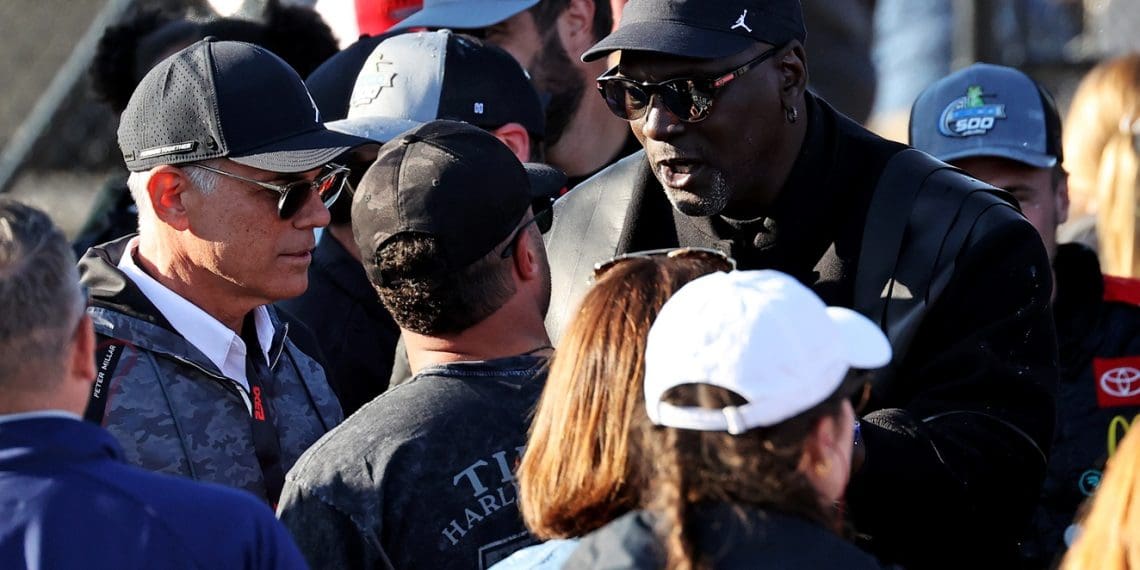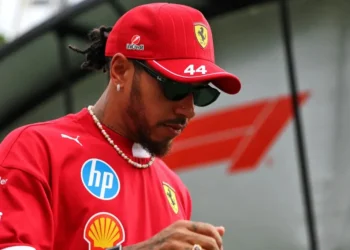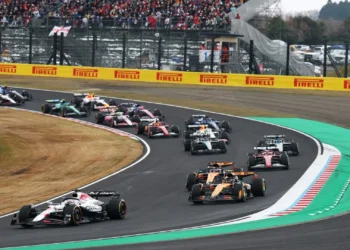Michael Jordan, the legendary 6-time NBA champion, is once again looking to transform the game—only this time, it’s not on the hardwood. His NASCAR team, 23XI Racing, has joined forces with Front Row Motorsports (FRM) in a high-stakes legal battle against NASCAR itself, claiming monopolistic practices in the controversial charter system. The preliminary injunction granted on December 18th is a game-changer, allowing these teams to race as chartered entities while continuing their antitrust lawsuit. But the ripple effect of this case could shake NASCAR to its core, potentially rewriting the rules for all teams on the grid.
The Fight for Autonomy: A New Charter Deal in Sight?
The charter system, introduced in 2016, has long been a bone of contention. Designed to bring financial stability and increase franchise value, it also concentrated significant power in NASCAR’s hands, leaving teams with limited autonomy. Many have begrudgingly accepted these terms, as Rick Hendrick famously put it:
“Not everybody was happy. But in any negotiation, you’re not going to get everything you want.”
However, with the lawsuit spearheaded by Jordan’s 23XI Racing and Bob Jenkins’ FRM, the tide may be turning. According to Fox Sports’ Bob Pockrass, the outcome of this case could lead to changes in the charter agreement that would benefit all teams, not just the plaintiffs.
This could open doors to:
- Greater Autonomy: Teams may gain more control over their operations and decisions.
- Freer Charter Market: Teams could buy, sell, or trade charters without NASCAR’s intervention.
- Direct Negotiations: Teams might engage directly with other entities, bypassing NASCAR’s mediation.
A Turning Point in NASCAR’s History
If 23XI and FRM succeed, it will mark a seismic shift in NASCAR’s structure, disrupting the traditional stronghold of the France family. With other teams potentially inspired to challenge the system, the lawsuit could catalyze a broader movement toward team empowerment. This newfound leverage could encourage teams to demand better terms in future agreements, reshaping the team-owner relationship with NASCAR.
NASCAR’s Counterattack: “Irreparable Harm” and Legal Maneuvers
NASCAR isn’t going down without a fight. In response to the injunction, the governing body has filed an emergency motion for a partial stay and a request for an injunction bond. Their primary concerns include:
- Financial Commitments: NASCAR argues that approving the sale of charters from Stewart-Haas Racing (SHR) would lock them into a 7-14 year financial relationship with the plaintiffs, bypassing due process.
- Loss of Control: NASCAR fears losing its grip on the charter market, a cornerstone of its governance.
- Confidentiality Risks: Allowing teams to race under charter benefits could force NASCAR to disclose sensitive information.
NASCAR’s proposed compromise is to guarantee two cars each for 23XI and FRM in 2025 races but delay the SHR charter transfers and the full benefits of charter membership. It’s a middle ground aimed at mitigating damages while the legal battle continues.
The Bigger Picture: Could This Redefine NASCAR?
If the lawsuit ultimately succeeds, it could redefine how NASCAR operates, tilting the balance of power toward the teams. The ripple effect could:
- Empower smaller teams to challenge NASCAR’s authority.
- Encourage more equitable revenue-sharing models.
- Alter the competitive landscape by loosening restrictions on charter sales and operations.
But this also raises questions:
- Will NASCAR lose its centralized control?
- Could a freer system lead to instability?
- How will this impact the sport’s long-term financial health?
What’s Next?
The clock is ticking as NASCAR battles to block the SHR charter transfers ahead of the December 20 deadline. Meanwhile, the court aims to resolve the broader lawsuit by the start of the 2026 season. As this legal drama unfolds, the stakes couldn’t be higher—for NASCAR, its teams, and the sport’s future.
What do you think? Could Michael Jordan’s legal push spark a revolution in NASCAR, or will the system prevail as it stands? Let us know your thoughts in the comments below!










